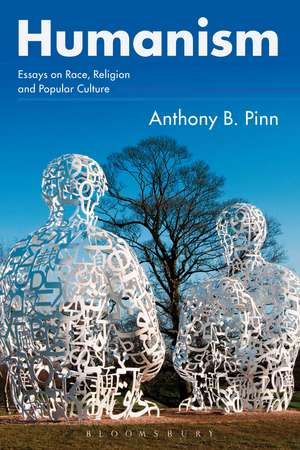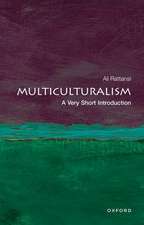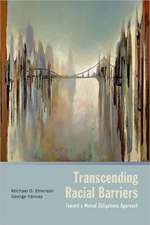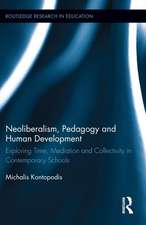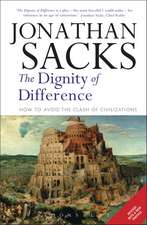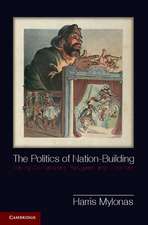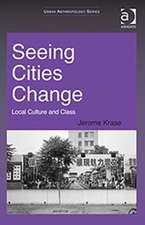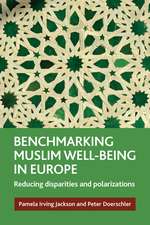Humanism: Essays on Race, Religion and Popular Culture
Autor Anthony B. Pinnen Limba Engleză Paperback – 26 aug 2015
| Toate formatele și edițiile | Preț | Express |
|---|---|---|
| Paperback (1) | 178.22 lei 3-5 săpt. | |
| Bloomsbury Publishing – 26 aug 2015 | 178.22 lei 3-5 săpt. | |
| Hardback (1) | 713.72 lei 6-8 săpt. | |
| Bloomsbury Publishing – 26 aug 2015 | 713.72 lei 6-8 săpt. |
Preț: 178.22 lei
Nou
Puncte Express: 267
Preț estimativ în valută:
34.11€ • 35.48$ • 28.16£
34.11€ • 35.48$ • 28.16£
Carte disponibilă
Livrare economică 22 martie-05 aprilie
Preluare comenzi: 021 569.72.76
Specificații
ISBN-13: 9781472581426
ISBN-10: 1472581423
Pagini: 184
Dimensiuni: 156 x 234 x 15 mm
Greutate: 0.32 kg
Editura: Bloomsbury Publishing
Colecția Bloomsbury Academic
Locul publicării:London, United Kingdom
ISBN-10: 1472581423
Pagini: 184
Dimensiuni: 156 x 234 x 15 mm
Greutate: 0.32 kg
Editura: Bloomsbury Publishing
Colecția Bloomsbury Academic
Locul publicării:London, United Kingdom
Caracteristici
Includes new and existing essays by the author, all with contextualizing introductions; examples discussed range from humanist churches to the lyrics of Jay Z
Notă biografică
Anthony B. Pinn is Agnes Arnold Professor of Humanities and Professor of Religious Studies at Rice University, USA. He is Founding Director of the Center for Engaged Research and Collaborative Learning (CERCL), and Director of Research at the Institute for Humanist Studies, Washington DC, USA.
Cuprins
AcknowledgementsIntroduction: Sisyphus, Humanism, and the Challenge of ThreeSection One: Race1. Racing Humanism: Two Examples for Context2. The Ongoing Challenge of Race3. African Americans Living Li(f)e4. Does Race Have a Religion? On the 'Faith' of Du BoisSection Two: Religion5. Nimrod Is a Hero.and God Is a Problem6. Humanism and the Rethinking of a King's King7. Putting Jesus in His Place8. Gathering the Godless: Intentional 'Communities' and Ritualizing Ordinary LifeSection Three: Cultural Production9. Learning to Be Cool, or Making Due With What We Do10. End of the 'End': Humanism, Hip Hop and Death11. Speaking in Public: The Problem of Theistic Language for Collective LifeEpilogue: Sisyphus's HappinessBibliography
Recenzii
Thoughtful and timely, insightful and compelling, this collection of essays takes humanism in new and needed directions. To be warmly welcomed.
As humanism grows and develops, the evolving field of humanist studies needs to catch up with both its growing diversity and its intellectual rigor. Professor Pinn is in the vanguard of this endeavor and these essays are an essential contribution to this academic debate.
This is classic Tony Pinn, eloquently and effortlessly exploring religion as human meaning making through the prisms of race, religion, ritual and popular culture; criticizing the ways that theism has limited human flourishing and community; and encouraging secular and humanist thinkers to take up a more positive and constructive engagement with the religious, even with the Bible. Such a deeply moral, deeply positive humanism is exactly where we should be at this cultural and political moment, "somewhere," as he puts it, "between absurdity and happiness.
As humanism grows and develops, the evolving field of humanist studies needs to catch up with both its growing diversity and its intellectual rigor. Professor Pinn is in the vanguard of this endeavor and these essays are an essential contribution to this academic debate.
This is classic Tony Pinn, eloquently and effortlessly exploring religion as human meaning making through the prisms of race, religion, ritual and popular culture; criticizing the ways that theism has limited human flourishing and community; and encouraging secular and humanist thinkers to take up a more positive and constructive engagement with the religious, even with the Bible. Such a deeply moral, deeply positive humanism is exactly where we should be at this cultural and political moment, "somewhere," as he puts it, "between absurdity and happiness.
